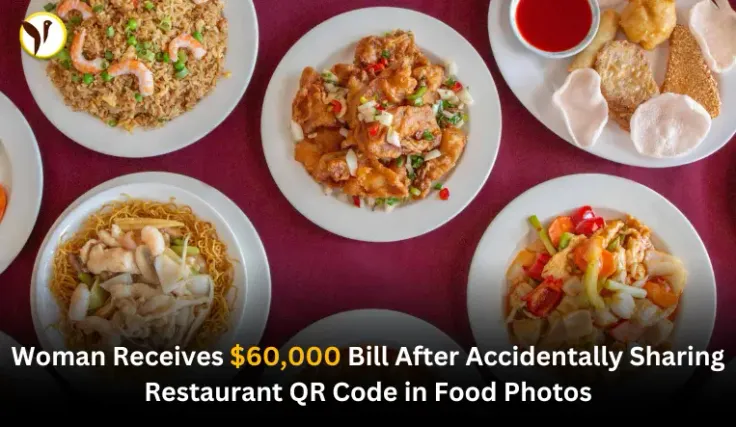A woman in China, identified by her surname Wang, encountered an unforeseen financial burden when she innocently shared photos of her dining experience on social media. What she hadn't realized was that amidst her picturesque snapshots of delectable dishes, she accidentally revealed the QR code attached to her table, intended for ordering and paying for meals.
In the aftermath of her post, Wang was flabbergasted to receive a staggering bill amounting to 430,000 yuan (approximately USD 60,000). Her inadvertent blunder? The exposed QR code had been used by others to place food orders, as reported by the South China Morning Post.
Source: Spring Chinese
Also Read: Cyclone Michaung Devastates Southern India: Nine Lives Lost, Heavy Rains Wreak Havoc
Expressing her intent to merely share her culinary experience from a hotpot restaurant visit with a friend on November 23, Wang shared the pictures on her restricted viewing WeChat Moments page. Unfortunately, this audience included individuals who proceeded to scan the code.
Swiftly deleting the posts did little to mitigate the situation, as someone may have downloaded the code, enabling continued orders. The bill's screenshot posted by Wang detailed hefty orders including 1,850 portions of fresh duck blood, 2,580 portions of squid, and a whopping 9,990 portions of shrimp paste, each priced at a few dozen yuan.
Source: Hotel Mousai
Also Read: CEO of Shaadi.com Compares Google to 'Digital East India Company' Over Alleged 'Google Tax'
Remarkably, the restaurant exhibited leniency by not billing Wang for the additional orders, relocating her to a different table and disregarding the orders made through the exposed QR code. Regrettably, the restaurant management couldn't trace the individuals responsible for the orders or prevent further misuse.
Reflecting on the incident, Wang highlighted the need for heightened information security awareness, urging caution before sharing food images online to prevent such mishaps.This occurrence serves as a cautionary tale, emphasizing the inadvertent consequences of social media sharing and the importance of safeguarding sensitive information in an increasingly digital age.
Also Read: Big Changes to Who Can Come to the UK - Some People Upset







